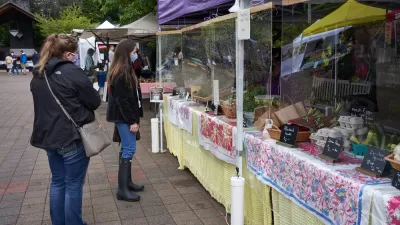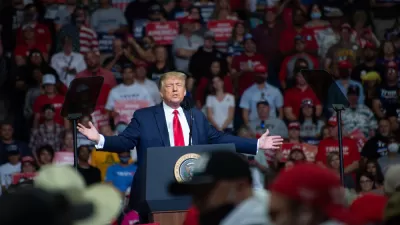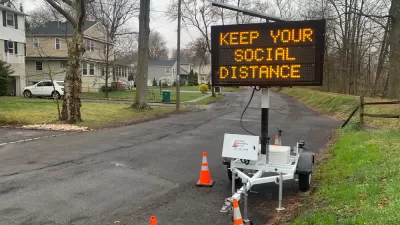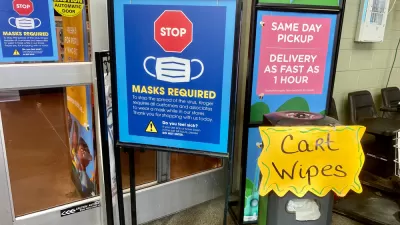Irvin Dawid discovered Planetizen when a classmate in an urban planning lab at San Jose State University shared it with him in 2003. When he left San Jose State that year, he took with him an interest in Planetizen, if not the master's degree in urban & regional planning.
As a long-time environmental activist, he formed the Sustainable Land Use committee for his local Sierra Club chapter and served six years on the Bay Area Air Quality Management District’s Advisory Council from 2002-2008. He maintains his interest in air quality by representing Sierra Club California on the Clean Air Dialogue, a working group of the Calif. Environmental Dialog representing business, regulatory and public health/environmental interests.
Major interests include transportation funding, e.g., gas taxes, vehicle miles traveled (VMT) fees, road tolls and energy subsidies that lead to unlevel playing fields for more sustainable choices.
He hails from Queens (Bayside) and Long Island (Great Neck); received an AAS in Fisheries & Wildlife Technology from SUNY Cobleskill and a B.S. from what is now Excelsior College.
After residing for three years on California’s North Coast, he’s lived on the San Francisco Peninsula since 1983, including 24 years in Palo Alto. Home is now near downtown Burlingame, a short bike-ride to the Caltrain station.
He’s been car-free since driving his 1972 Dodge Tradesman maxi-van, his means to exit Long Island in 1979, to the junkyard in 1988.
Major forms of transportation: A 1991 'citybike' and monthly Caltrain pass, zone 2-2. "It's no LIRR, but it may be the most bike friendly train in America."
Irvin can be reached at [email protected]

The Disconnect Between Virus Prevalence and Local Business Climate
Public health experts assert that to safely reopen the economy, the coronavirus needs to be contained. In Manhattan, where the virus is largely controlled, chain restaurants are closing while their sister stores in Florida are expanding.

The Two Conflicting Sides of the Federal Approach to the Pandemic
While President Trump is publicly stating the virus "will soon disappear," his task force is releasing detailed, county-level data on how all 50 states are dealing with the coronavirus and making recommendations – but the reports are not public.

Pandemic's New Phase: Spreading to Rural and Urban Areas Alike
A top public health expert in the Trump administration warned that the U.S. is in a "new phase" of the pandemic, different from March and April when the coronavirus largely affected a few big cities. Now urban and rural areas alike are vulnerable.

Mask Mandates Without Enforcement Amount to Half-Measures
Issuing a ticket to a pedestrian for not wearing a mask in Miami is like issuing a ticket to a motorist for not wearing a seatbelt, states a specially-detailed Miami police officer. Welcome to the "new normal" in this coronavirus hotspot.

Staying Healthy During the Pandemic
Local parks and green spaces that enable safe social distancing have never been more important to people living in cities. The Trust for Public Land has released a new report showing their importance and the challenges they are facing.

























